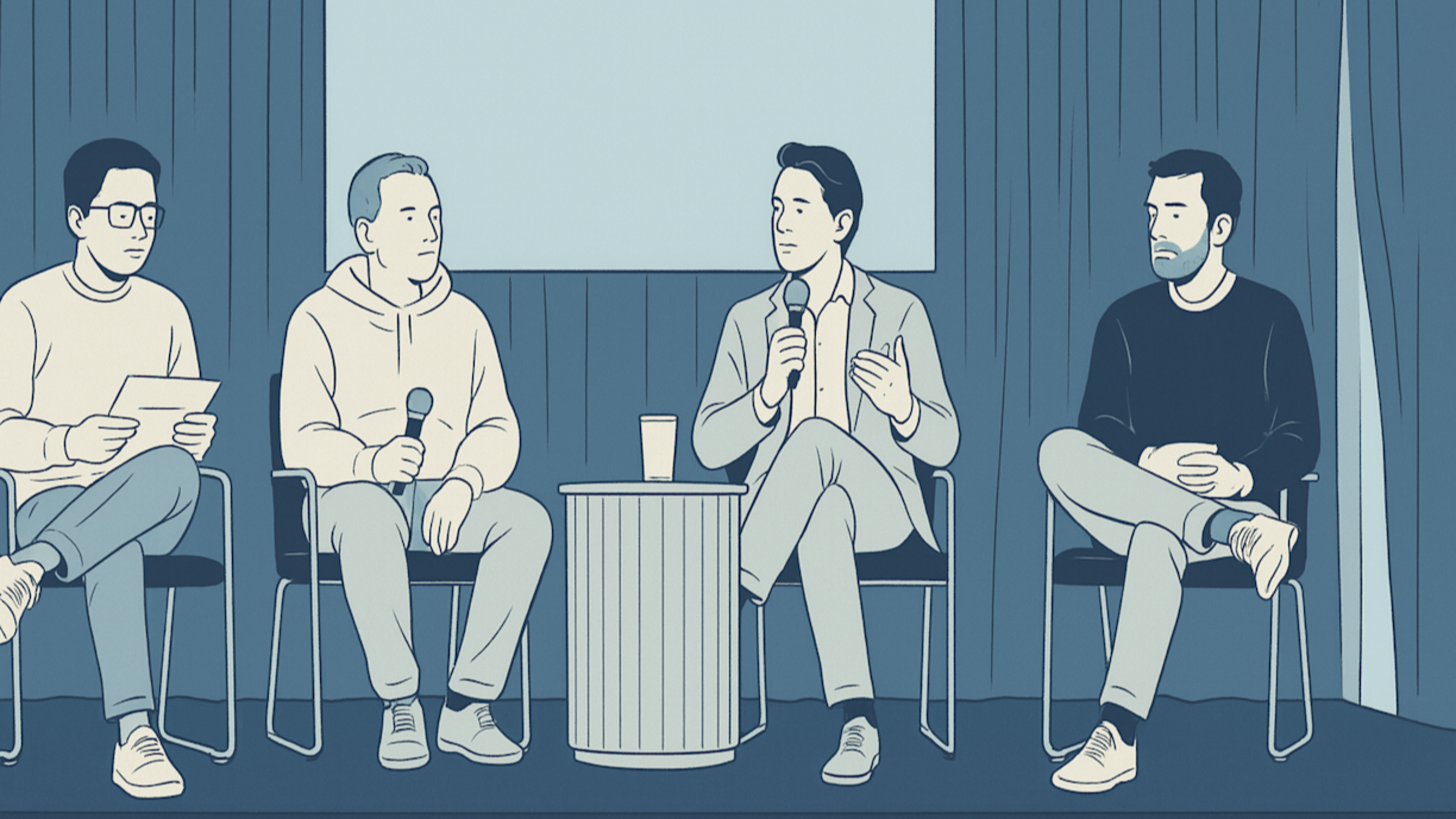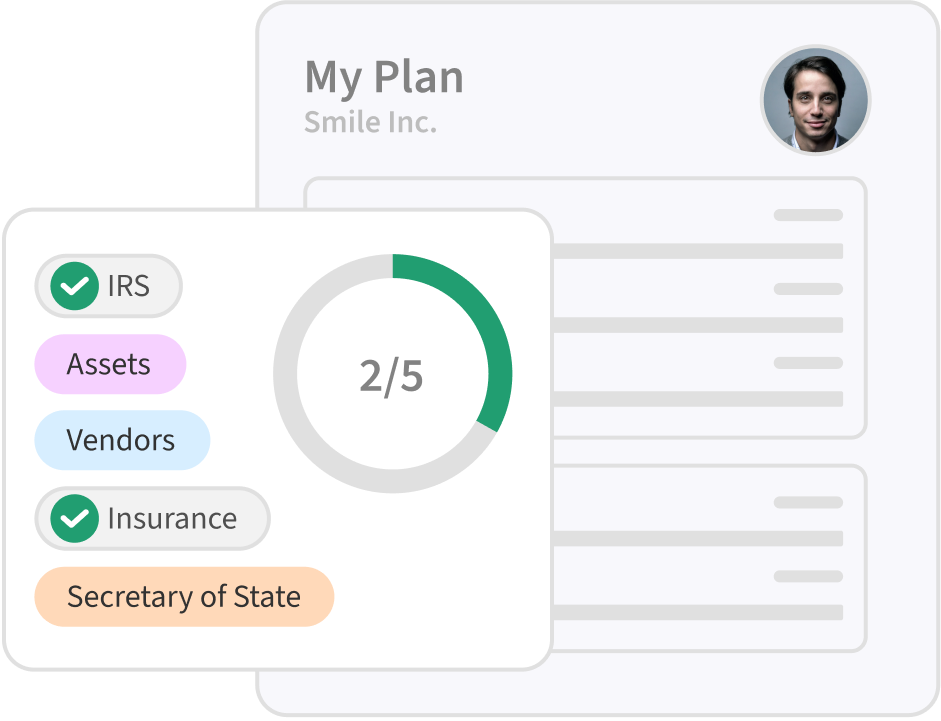At LA Tech Week, TX Zhuo (Fika Ventures) moderated a conversation that looked past the usual highlight reel of startups and into what actually happens when founders hit the messy middle — when conviction blurs into burnout, and you have to decide whether to double down or walk away. It’s a reality many second-time founders know well: lessons learned through startup failure, pivots, and hard-won clarity.
The panel brought together Joe Fernandez (Klout, Joymode, AllUP), David Sobie (Happy Returns PayPal), and Dori Yona (Earny, SimpleClosure). Each had built, scaled, and faced breaking points. Together, their stories traced how ideas form, how conviction hardens, and how clarity emerges on the other side. Below are 5 key takeaways founders can glean from.
1) The Spark
Most companies begin with a fixation that won’t let go. It’s not about chasing trends or investors. It’s about seeing something broken and feeling pulled to fix it.
For David, the spark for Happy Returns came from his time leading marketing at HauteLook, a flash sale business later acquired by Nordstrom. There, his team ran a pilot letting customers buy online and return items at Nordstrom Rack. The data told a clear story: people hated mailing things back and loved the immediacy of in-person refunds.
“We kind of said, gosh, maybe we can turn this into an independent business that would offer the same service to other retailers that are online only but don’t have physical stores.”
But, merchants pushed back, “Why would I make returns easier for my customers? I hate returns.” Investors couldn’t categorize it either. “We were this sort of SaaS business that also had a warehouse that also, you know, you're B2B2C… at the time that wasn’t a thing.”
They scraped together a seed round, and for a year and a half, most people laughed them out of the room. Then one morning, Amazon announced a partnership with Kohl’s for in-store returns.
You wake up in the morning and your idea has been validated by the biggest retailer on the planet… It was like, I told you this is gonna be a thing.
For Dori, the story started differently. At Earny, his company was shutting down and he had to present a full closure plan — timeline, layoffs, filings, and severance. There was no playbook for doing it right. After talking to dozens of founders who’d been through the same pain, one said, “Can I just pay you to do this?” That single question became SimpleClosure’s first customer. What began as helping one founder navigate how to close a company has since grown into a platform for startup dissolution done right.
Takeaway: The best ideas come from the experiences you’d never want to repeat.
2) When Conviction Meets Reality
Conviction drives founders forward when nothing else does. But it can also create blind spots. Every founder believes their idea is different until the market or the math proves otherwise.
Joe learned that at Joymode. The company let people borrow everything they needed for experiences instead of owning things they rarely used. The brand had traction and loyal customers, but the numbers didn’t work. “We wanted to be Amazon for ownership,” he said. “And we were becoming the biggest rental company in LA.”
He described the turning point:
“When I thought about the money on the cap table, the talent of the team, and the days of our lives — like what are we actually doing? It wasn’t adding up anymore. We are working as hard as we can. We’ve tried every idea we can think of. It’s just not there. This is a job, not a venture company.”
That realization led to one of the hardest but most honest decisions of his career: “We immediately just shifted to, like, we’re selling this company, we’re winding down… It was that intellectual honesty, just like our time and energy is the most valuable thing.”
David faced the opposite problem. His conviction in Happy Returns was strong, but the world didn’t understand it yet. “Retailers told us we were crazy,” he said. “VCs didn’t know how to categorize us.” The team kept pushing until the market caught up. When Amazon validated the same insight they’d been pitching for years, “it was like the wind behind our sails.”
For Dori, conviction showed up as clarity after failure. When his previous company shut down, he saw how broken the process was. The filings, the tax steps, the communications. None of it was built for founders who had already given everything.
Most founders think shutting down is failure, but it's not. It's part of the cycle.
Starting SimpleClosure wasn’t a leap of faith. It was a response to a pain he had lived. “I knew this problem wasn’t going away,” he said. “It felt inevitable, not optional.” His experience highlights a broader truth: the most valuable startup failure lessons come only after living through one yourself.
Takeaway: Conviction gets you through uncertainty, but it can’t replace evidence. At some point you have to measure what’s real and act accordingly.
3) The Hard Parts
Every founder eventually reaches a stretch where effort and optimism no longer feel like enough. For some, it builds quietly through hard decisions, uncertainty, and the weight of leadership.
Dori described the layoffs at Earny as the most difficult period of his career. Two rounds, most of the team. He and his co-founder cried through the process, and so did the employees. “If I could add: be more transparent, earlier,” he said. “Your team already senses the reality.”
Joe shared his own low. Klout had signed a term sheet to sell to Microsoft; five days before close, Ballmer was out and the deal froze. “Sometimes it’s a coin flip between parade and replacement,” he said. “The roller coaster never ends; don’t get too high or too low.”
David talked about how, as CEO, the hardest part wasn’t one big crisis but the accumulation of tough calls. “When you’re the co-founder and CEO, that basically means all the shitty things fall to you,” he said. That includes layoffs, pivots, and letting go of people who helped you get there. It’s the emotional tax of leadership that few prepare for.
Takeaway: Founders aren’t tested by the highs. They’re tested by how they handle the hard parts, and how they treat people while doing it.
4) The Second Time Around
Experience doesn’t erase the hard parts of building a company. It just changes how you move through them. The second time, you’re less surprised by chaos and more careful with your energy.
After Klout, Joe said, “I actually started Joymode like it was almost stop work on Friday, on Monday I’m back in the new.” He admitted he should have taken more time. “I think my investors probably spent $20 million just for me to learn to be a CEO.”
He reflected on how experience reshapes perspective:
There’s so much power in being naïve and not knowing how hard the challenge you’re taking on is… Now I’ve been through it, I’m like, oh man, this is going to suck. There’s a little bit of hesitation even though you still run towards it.
Later, he added:
“Don’t over-optimize valuation. A too-high price is the one mistake that’s impossible to unwind.”
David emphasized the importance of the people around you: “Co-founder fit is everything. You need someone you can be vulnerable with, who’s up when you’re down and vice versa.”
Dori agreed: “The best decision I ever made was picking my co-founder. You make a thousand decisions; that one matters most.”
Takeaway: Experience gives you pattern recognition. You still hit walls, but you learn to slow down before you hit them headfirst, and you choose who’s there with you.
5) Redefining Success
Over time, success stops being about speed and surface. It becomes about whether you can build something that still feels meaningful once the excitement fades.
Joe’s focus has shifted from external validation to alignment. He now talks about transparency and pacing rather than optics.
David’s definition is similar. Milestones matter, but what lasts is whether customers truly value what you built — and whether you’d do it again the same way.
Dori put it plainly: “When founders tell me they want to start something, I ask if they like suffering. Because that’s what it is. You have to love the process itself.”
Takeaway: Success isn’t measured by what you build next. It’s measured by how much of yourself you keep intact while building it.
For Founders in the Middle of It
If you’re somewhere between conviction and clarity, you’re not alone. Every founder on that stage had to unlearn something to move forward. Each realized that growth doesn’t always mean pushing harder — sometimes it means redefining what you’re chasing.
Clarity rarely arrives during the rush of building. It comes afterward, when you have enough distance to see what really mattered after shutting down a startup
Progress isn’t always up and to the right. Sometimes it looks like slowing down, reassessing, and finding a better way forward.
If you’re a founder navigating a shutdown, there’s no need to handle it alone. SimpleClosure is here to help you close cleanly and with confidence.

